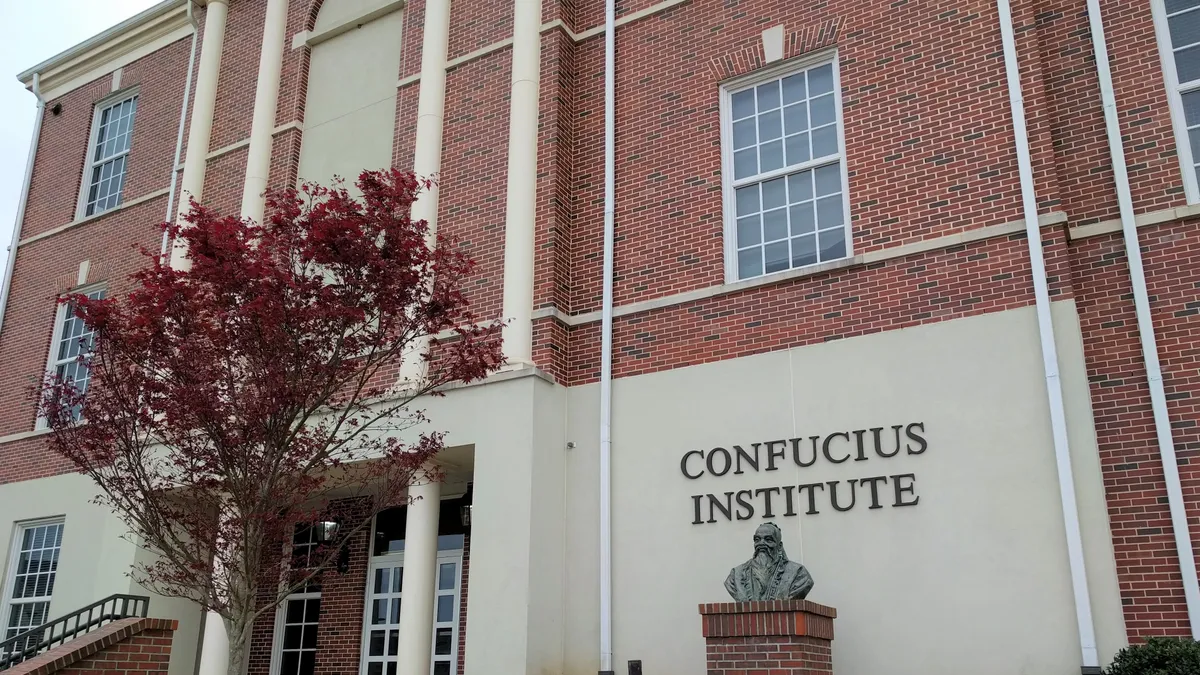Dive Brief:
- U.S. colleges should develop ways to spot and curb risks associated with hosting foreign-funded language and culture institutes on their campuses, according to a new report from the National Academies of Sciences, Engineering, and Medicine.
- Protections include having university control over the curriculum, instructors and programmatic decisions at these institutes. The report also recommends colleges periodically review these institutes and limit their employees’ access to university computer networks.
- Colleges should consider additional vetting to mitigate risks presented by institutes with ties to “countries of concern,” which the National Academies say are “fluid and change over time.” The U.S. Department of State and some colleges maintain lists of these countries, which often include China and Russia.
Dive Insight:
Although many foreign-funded language and culture institutes exist — including the United Kingdom’s British Council and Germany’s Goethe-Institut — the Chinese government-funded Confucius Institutes are among the most well known. That’s because their ties to China have sparked concerns over academic freedom and espionage.
In 2021, federal law barred colleges that host Confucius Institutes past October 2023 from receiving funding from the U.S. Department of Defense, though the agency has since waived that prohibition for colleges that adopt certain safeguards.
The new National Academies report, the second of two, responds to a Defense Department request to look into issues related to foreign-funded cultural centers on college campuses. The first, released in January, developed recommendations for the Defense Department’s waiver program for Confucius Institutes.
Shortly afterward, the Defense Department released its guidance for its waiver program, which requires colleges with Confucius Institutes to demonstrate they have certain cybersecurity protocols in place and control over these centers’ curriculum.
However, some conservative lawmakers want to crack down further on Confucius Institutes. In April, four Republican senators reintroduced a bill that would prevent funding from the U.S. Department of Homeland Security from flowing to colleges that house the centers.
Just five are on U.S. college campuses today, according to the report from the National Academies. That’s down from a peak of more than 100.
Earlier this month, Sen. Marco Rubio, a Florida Republican, also introduced a proposal that would no longer allow the Defense Department to issue waivers for colleges with Confucius Institutes.
“There is no situation where we should make it easier for the Chinese Communist Party to spy on our universities,” Rep. Jim Banks, a Republican from Indiana, said in a statement. He introduced a companion bill in the House of Representatives.
The National Academies report said it is not aware of any unclassified evidence suggesting that Confucius Institutes or other language and cultural institutes were associated with spying or stealing intellectual property.















